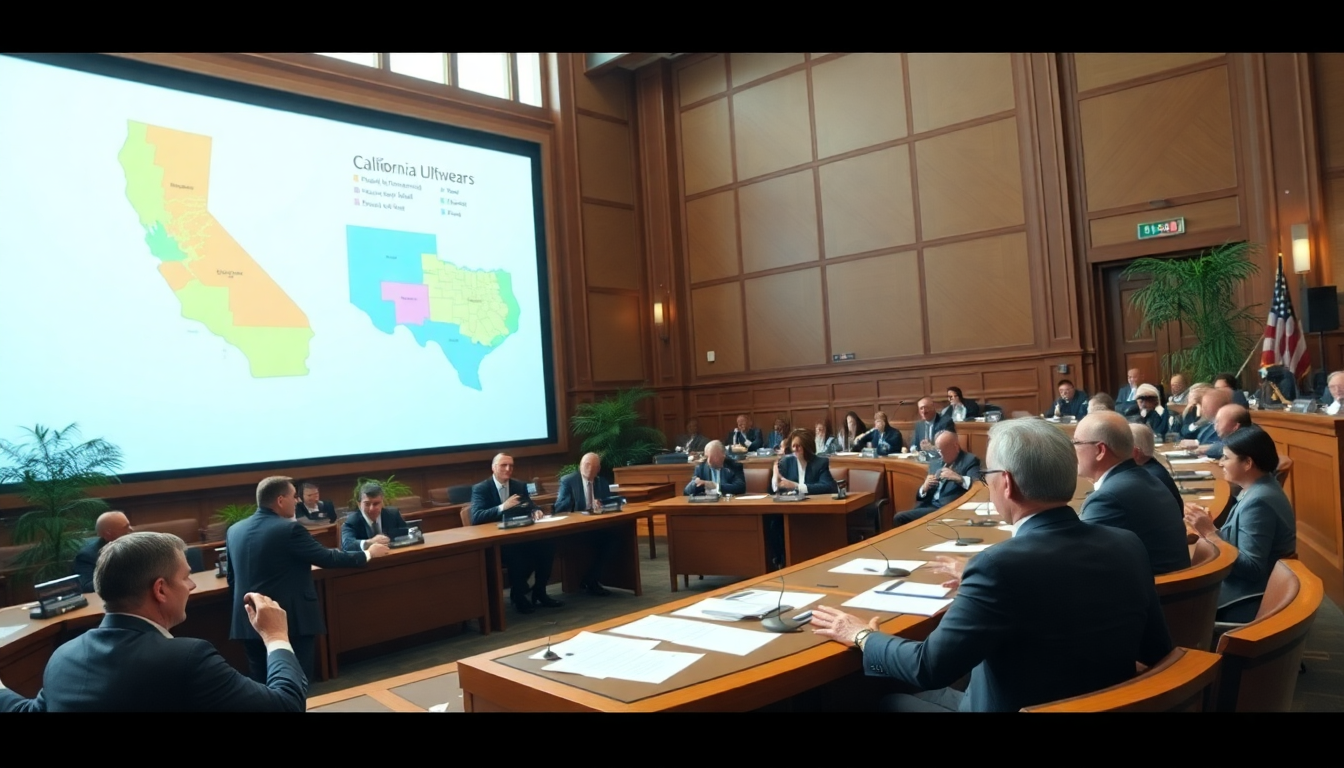Table of Contents
The political landscape in the United States is becoming increasingly polarized, with states like California and Texas at the forefront of this divide. Recently, California Governor Gavin Newsom made headlines by vowing to fight back against Texas lawmakers’ redistricting efforts with equal intensity.
His commitment to tackling “fire with fire” not only highlights a tactical approach to political maneuvering but also raises important questions about the integrity of our democratic processes. How can states protect their interests while ensuring fairness and transparency in redistricting? Let’s dive into the complexities of this critical issue.
Understanding the Redistricting Landscape
Redistricting is a vital process that occurs every ten years following the census, and it has a profound impact on political representation. In Texas, Republican lawmakers are pushing for a redistricting plan that has sparked concerns among Democrats about potential gerrymandering.
Newsom’s response suggests he is ready to implement similar strategies if Texas goes through with its plans. This back-and-forth approach underscores the ongoing struggle for political power in the United States and raises significant questions about the integrity of the electoral process.
Newsom has been vocal in his support for independent redistricting processes that prioritize transparency and fairness. He argues that if Texas pursues aggressive tactics, California must respond in kind. This perspective reflects a growing awareness that redistricting isn’t merely a local issue; it’s a national concern that impacts the political landscape across the country.
During a recent press conference, Newsom emphasized the need for a transparent mapping process, asserting that the public deserves to understand how districts are drawn and the implications of these decisions. His stance is rooted in fundamental democratic principles, where voters should have a say in their representation rather than politicians dictating the terms of their electoral districts.
The Political Implications of State Actions
The potential political showdown between California and Texas carries significant implications for both states and the nation. For California, the stakes are high as it navigates its identity as a progressive stronghold in contrast to Texas’s conservative governance. Newsom’s readiness to engage in this political battle signals a commitment to upholding California’s values and protecting its voters against perceived injustices.
However, the response from Texas lawmakers, including Governor Greg Abbott, shows a fierce determination to push forward with their redistricting plans. Abbott’s threats to arrest absent Democrats highlight the contentious nature of this political conflict. This situation reflects a broader trend where state governments are increasingly willing to confront one another over representation and rights.
This political rivalry also has real-world ramifications for voters. As both states engage in political posturing, the impact on constituents—especially marginalized communities—cannot be overlooked. The decisions made during this redistricting cycle will shape power dynamics in Congress and state legislatures for years to come, affecting critical legislation on issues like healthcare, education, and civil rights.
Future Directions and Expectations
Looking ahead, the potential for continued conflict between California and Texas over redistricting remains strong. As both states gear up for midterm elections, the stakes for political representation are higher than ever. If Texas moves forward with its controversial redistricting measures, other states may be prompted to reassess their own processes and consider adopting similar strategies.
Moreover, the national conversation surrounding redistricting is likely to heat up. The discussions initiated by Newsom and Texas Democrats could inspire action in other states, potentially leading to a more unified approach to independent redistricting efforts across the country. As the political landscape evolves, the focus on transparency and fairness in the electoral process will be more crucial than ever.
Ultimately, the unfolding drama between California and Texas serves as a reminder of the intricate relationship between state politics and national governance. The outcome of this conflict could shape the future of democracy in America, influencing how political representation is determined and how voters connect with their elected officials. Are we ready for the change that’s coming?





